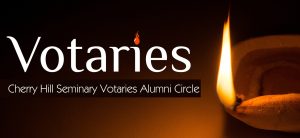Degree Programs at Cherry Hill Seminary
Master of Divinity (M.Div.)
The basic professional degree for the work of clergy supported by academic studies, a Master of Divinity degree requires the equivalent of three years of full-time study, 72 credit hours, and is considered a “terminal degree.” Ordination by one’s specific group or tradition may be required for endorsement or employment in addition to the degree (Cherry Hill Seminary does not ordain clergy). Students in the program are required to choose a major area of study and corresponding academic department from those described under Major Areas of Study. The Master of Divinity with a Pastoral Counseling major is a separate program (described below), with different requirements from the Master of Divinity degree.
Master of Divinity – Pastoral Counseling & Chaplaincy
The Master of Divinity, Pastoral Counseling & Chaplaincy major, degree provides coursework and practical experience leading to a career as a Pastoral Counselor or Chaplain. A Master of Divinity degree requires the equivalent of three years of full-time study, 93 credit hours, and is considered a “terminal degree.” Ordination by one’s specific group or tradition may be required for endorsement or employment in addition to the degree. Cherry Hill Seminary does not ordain clergy. Students in this program are considered to be Pastoral Counseling and Chaplaincy Majors. The Master of Divinity with a Pastoral Counseling major is a distinct program, with different requirements from the general Master of Divinity degree described earlier.
Master of Pagan Studies
The Master of Pagan Studies degree fosters Pagan scholarship with study and research in the Department of Theology and Religious History. To earn the degree requires 48 credit hours, the equivalent of two years of full-time study. Studies include courses from each department, plus a project, intensives attendance and a thesis.
Each master’s degree has specific requirements for face-to-face Academic Intensive sessions, held in various retreat locations. A student can expect to travel to a three-to-four day event at least twice. All of our degrees at this time are Master’s level. Classes are online, i.e., distance education. Practicums and internships must be done locally, with Seminary and local supervision. The Seminary does not offer undergraduate or doctoral degrees.
Majors
Each of three major areas of graduate study is associated with an academic department at Cherry Hill Seminary:
- Department of Ministry, Advocacy and Leadership
- Department of Pastoral Counseling & Chaplaincy
- Department of Theology and Religious History
Students are advised to contact the chair of the department for specific program and course information. Master of Pagan Pastoral Counseling students do not select an additional major area of study. Students admitted to Master of Pagan Ministry, Master of Pagan Studies and Master of Divinity programs may not choose Pagan Pastoral Counseling as a major. Such students may pursue a Master of Pagan Pastoral Counseling or a Master of Divinity, Pagan Pastoral Counseling major, programs with requirements specific to pastoral counseling.
Ministry, Advocacy and Leadership
Studies in Ministry, Advocacy and Leadership prepare students to serve the pan-Pagan community in interfaith, interreligious and secular venues, as well as to promote religious and other rights and responsibilities through interfaith chaplaincy and dialogue, media relations, activism, and public advocacy. Studies include study of ritual, religious leadership, education and the arts. Upon graduation, Ministry, Advocacy and Leadership majors will be able to:
- Define their personal theology of ministry in the overlapping contexts of pagan communities and the larger human communities.
- Demonstrate competency engaging historic and current social justice issues that affect both the pagan communities and human beings in general through their specific expressions of ministry, leadership or organizational advocacy.
- Identify models of leadership that constructively engage ministry and advocacy issues significant to pagan and larger human communities with a focus on the model that seems most fitting to the student’s ministry/leadership goals.
- Construct portfolios, rituals, ministry plans or other organizational projects which demonstrate the student’s ability to integrate academic, social, public and religious resources for a targeted ministry audience.
- Demonstrate the ability to think critically while engaging materials, data and human concerns from the disparate realities engaged in a ministry, leadership or advocacy praxis.
- Articulate clearly and creatively how the student’s personal spiritual practices, developed ethical commitments and understanding of the modern pagan context inform his/her ministry, leadership or advocacy plans.
Pastoral Counseling & Chaplaincy
The Department of Pastoral Counseling and Chaplaincy educates students in approaches that integrate Pastoral Counseling and Chaplaincy studies with broad spiritual and scientific dimensions. Students explore how they, as practitioners of Pagan faith formations, serve Pagans and non-Pagans alike through counseling and chaplaincy services on parity with those professionals of other faith groups. We offer the education needed by those who aspire to be leaders with a global outreach in the pastoral counseling and chaplaincy professions. Department courses give the student a foundation in professional and pastoral counseling theories consistent with current standards of excellence and research, and foundations in the specialized ministry of chaplaincy in contemporary practice. Courses from each of the other departments enable students to explore a range of topics related to advocacy, ministry, theology and history.
Professional Standards
The Pastoral Counseling and Chaplaincy Department meets basic educational and professional standards for students who plan to work in various counseling settings, and for those who plan to work in the professional chaplaincies. No institution or professional organization (i.e., APA, ACA, APC, etc.) grants licensure to practice in a regulated profession. Licensure authority is solely under the purview of the State in which the regulated profession is practiced. Students seeking licensure are advised to consult the State regulating authority in which they plan to practice counseling, pastoral counseling or work as a professional chaplain. Professional counseling is regulated in all States; pastoral counselors and chaplains may or may not fall under the oversight or regulation of a given State. Pastoral Care and Counseling students study primarily counseling with secondary concentration in theology. Chaplaincy students primarily study theology with a secondary concentration in counseling.
Upon graduation, students who wish to offer pastoral counseling will be able to:
- Define and explain theories of pastoral counseling as well as the fundamentals of secular counseling.
- Articulate the principles of pastoral counseling in a variety of pluralistic and culturally diverse settings.
- Assess client needs in a context of spiritual counseling.
- Design and tailor counseling interventions to individual clients.
- Monitor the progress of the client throughout the intervention process.
- Recognize when to conclude the intervention and when to refer client to a more specialized form of counseling.
- Evaluate success or failure of outcome of the intervention
- Conduct original relevant research using primary and secondary source materials.
Upon graduation, students who serve as chaplains will be able to:
- Define and explain the theory and practice of professional chaplaincy as a specialized ministry.
- Articulate the principles of pastoral care and chaplaincy in a variety of pluralistic and culturally diverse settings.
- Demonstrate an understanding of sacred texts in terms of both historical and contemporary relevance.
- Articulate a basic awareness of a range of interfaith practices and traditions and demonstrate the ability to engage in meaningful dialogue across faith traditions.
- Critically engage in historical and contemporary theological expressions, and define a personal position through theological reflections.
- Demonstrate the ability to organize and conduct religious services and religious education in public, interfaith and parochial settings.
- Conduct original relevant research using primary and secondary source materials.
Theology and Religious History
The Department of Theology and Religious History offers students a unique opportunity to study theology, history and practice from a contemporary Pagan perspective. Graduates from this department will be able to:
- Define their personal theological positions using scholarly terms and contextualize that position within broader themes in contemporary Pagan theology;
- Engage with current intellectual debates in contemporary Paganism, particularly those related to defining the movement;
- Compare and contrast contemporary Paganism with related religious traditions and spiritualities, particularly indigenous, nature-based, regional, and land-based traditions;
- Conduct research using primary and secondary source materials and employing historical, anthropological, theological, literary, scientific, or other appropriate scholarly methodologies;
- Demonstrate a critical awareness of how race, class, gender, sexual orientation, and other social categories impact Pagan theology and practice .
Ready to start your educational adventure?
Detailed information is found in the Student Catalog, including specific requirements. After careful study, you may begin the process of application by completing the online admission form, but be sure to have all your information available before you start.
When an application package is complete, a representative from the Admissions Committee will contact the applicant to schedule a required personal interview, which may be conducted by telephone or Zoom. The applicant’s references will be verified. After the interview, the completed Application Package will be reviewed by the Admissions Committee. Applicants will be informed of the committee’s decision within 30 days after final review.



